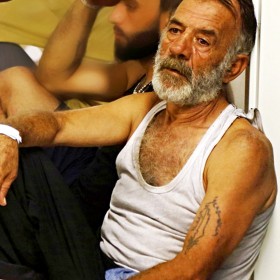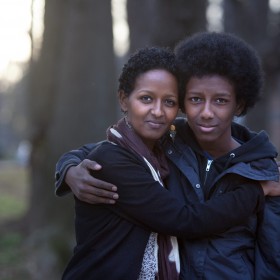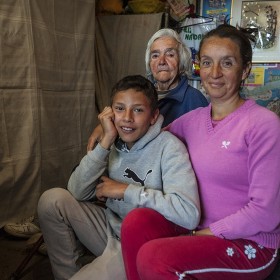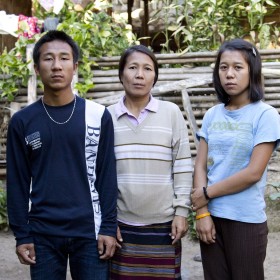Ahmed’s Story, Syria
Boglarka Balogh is a Hungarian freelance journalist covering humanitarian issues and author of a book on honor killings in India. She has visited several refugee camps all over the world. Currently she is working on her new book on the plight of Syrian refugees and the responsibility of the West towards them. This venture took her to the Hal Far refugee camp in Malta in December 2013.
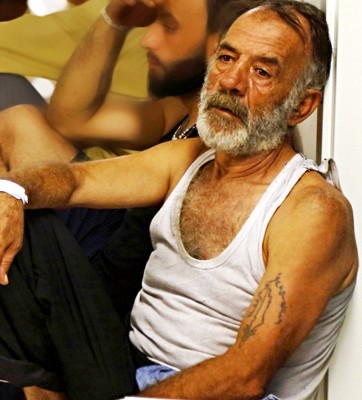
Ahmed after his arrival to the Hal Far refugee camp in Malta. Photo: Courtesy of The Times of Malta
Ahmed survived the disaster, but he can’t find a reason for his life any more. He lost eight members of his family at sea, when on October 11, 2013 their boat sank shortly after it has left Libya and just over hundred kilometers away from the Maltese coast with hundreds of Syrian refugees on board. Three dozen people died in the tragedy.
Ahmed together with most of the survivors was taken to one of the refugee camps in Malta. It was there that I met him. The 67 years old man recalled the horrible day with a broken heart. He had organized the itinerary of his family’s flight well in advance from Syria. “Agents” helped them to reach Libya, and from there, according to the deal, Tunisian smugglers should have transported them to Malta. But they got into the hands of a gang of Somalis, Libyans and Tunisians instead. They were kept locked up in a stable on a farm until the departure, that is until the smugglers managed to collect the number of refugees they wanted. Nobody was allowed to leave the building even for a minute. Days were passing and the price of the journey settled in advance rose all the time. Those women who were unable to cover the ever increasing amount got raped by their keepers, while the men got tied up and tortured.
In the end, Ahmed and the members of his family paid USD 3,000 per person in order to get on board. As they entered the boat, however, suddenly some Libyan militiamen showed up and held guns to their heads. They demanded more money. As it turned out the militiamen had noticed, that there were more than 200 passengers on board which was more than double than the number the smugglers had agreed upon with them. The refugees emptied their pockets and put together further several thousands of dollars. But it did not help.
All of a sudden a ship emerged behind them with the militiamen on board and followed their boat for hours. They wanted to force it back to Libya. As these efforts failed, the gunmen started to shoot at the defenceless refugees and severely injured many of them. Soon the bullets punctured the boat, and it sank within minutes.






